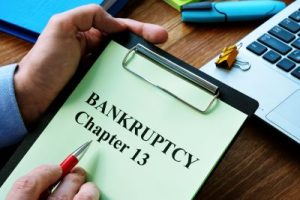What Can Chapter 13 Do For Me?

At a time when many Illinois families need more protection than ever from banks and debt collectors, bureaucrats have eliminated some important consumer protection rules. These moneylenders were already very aggressive when it comes to collecting past-due accounts. Now, they usually feel like they can push the envelope even further, because the government won’t do anything to stop them.
These creditors are forgetting about the protections available under Chapter 13 of the Bankruptcy Code. Although relief is available, the filing process is quite complex, and not all of the protections are well known. Only a Chicago bankruptcy lawyer can skillfully prepare and file your petition, and also unlock all the benefits of Chapter 13 for you and your family.
Automatic Stay
As soon as debtors file their voluntary petitions, Section 362 of the Bankruptcy Code, a/k/a the Automatic Stay, immediately stops creditor adverse action, such as:
- Wage garnishment,
- Foreclosure,
- Creditor harassment,
- Repossession,
- Creditor lawsuits, and
- Eviction.
In some cases, mostly if the petitioner has filed bankruptcy more than once in the past six months, the Automatic Stay might only have a limited effect.
It’s almost impossible for creditors to obtain special judicial permission and bypass the Automatic Stay. Generally, the debtor must clearly and directly threaten the collateral. Anything short of a Facebook post from the debtor which says something like “I’m going to burn down my house” is probably insufficient.
The Automatic Stay does more than immediately stop adverse creditor action. It gives petitioners breathing room to renegotiate unfavorable repayment terms. Interest rates are expected to remain very low through at least 2023, so now is a good time for such a renegotiation. And, your Chicago bankruptcy lawyer is a very skilled negotiator, since that’s part of an attorney’s job.
Protected Repayment Period
Usually, the Automatic Stay remains in effect for up to five years in a Chapter 13. During this time, the debtor makes income-based payments on secured debt arrearage, some unsecured debt arrearage, like past-due student loan payments, and other allowed claims.
A bankruptcy repayment plan is far superior to any payment arrangements the bank might offer out of the goodness of its heart. As mentioned, the repayment plan is based on your income as opposed to the amount of debt. Furthermore, the Automatic Stay prohibits creditors from pressuring debtors into paying more money or paying it faster. Indeed, Section 362 of the Bankruptcy Code prohibits creditors from communicating with debtors, in most cases.
If the monthly debt consolidation payment is too large, some options are available. Examples include a hardship discharge, payment modification, and a conversion to Chapter 7 bankruptcy.
As a bonus, at the end of the protected repayment period, the judge discharges most unsecured debts, such as medical bills and credit cards. Most debtors use the money they save on unsecured debt payments to build up a secured debt payment reserve. This reserve enables former debtors to weather divorce, job loss, and other financial storms, so they don’t wind up in bankruptcy court again.
Contact Dedicated Cook County Lawyers
If past-due mortgage payments and other such delinquency is a problem, Chapter 13 might be the solution. For a free consultation with an experienced bankruptcy attorney in Chicago, contact the Bentz Holguin Law Firm, LLC. Convenient payment plans are available.
Resource:
consumerfinance.gov/about-us/newsroom/consumer-financial-protection-bureau-issues-final-rule-implement-fair-debt-collection-practices-act/


